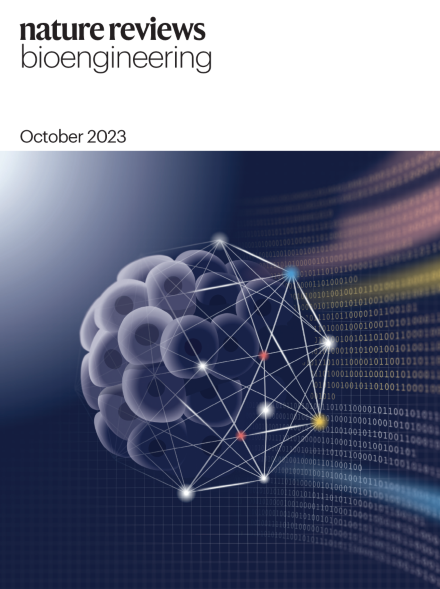投稿信息
稿件收录要求
Journal Information
Nature Reviews Bioengineering is a new online-only journal for the publication of Reviews, Perspectives and Comments in all scientific disciplines within bioengineering. The journal will launch in January 2023.
Our Reviews are balanced and objective analyses of the selected topic — with descriptions of relevant scientific literature and discussions that are easy to grasp for recent graduates in any bioengineering-related discipline, as well as informing principal investigators, clinicians and industry-based research scientists of the latest advances. Reviews should provide the authors' insight into future directions and their opinion of the major challenges faced by researchers in the field.
Our Perspectives — as the name suggests — take a look at a topic from a slightly different angle. They may offer more personal viewpoints, explain the historical background to a topic, or discuss some of the social, ethical or environmental factors related to bioengineering in academia and industry.
Our Comments are agenda-setting, authoritative, informed and often provocative expert pieces calling for action on topical issues pertaining to scientific research and/or its political, ethical and social ramifications. Comments are generally not peer reviewed, and we encourage authors to express their opinions.
Reviews, Perspectives and Comments are commissioned by the editorial team.
Aims & scope
Nature Reviews Bioengineering is an online-only journal publishing authoritative, accessible and agenda-setting Reviews, Perspectives and Comments covering the full breadth of bioengineering, focusing on application, translation and technology, that is, leveraging biological knowledge to engineer solutions for real-world applications.
Nature Reviews Bioengineering aims to bring together scientists and engineers interested in the design of materials, tools, methods, technologies or devices to mimic, modify or control biology, to understand biological mechanisms, combat disease or address environmental issues; clinicians leveraging research outputs in bioengineering to improve human health; and readers interested in product development, technology transfer and translation.
The journal also aims to highlight bioengineering approaches in the United Nations Sustainable Development Goals (SDGs) framework, in particular, good health and well-being, zero hunger, gender equality, reduced inequalities, responsible consumption and production, and climate action. In addition, we seek to amplify diverse voices, provide a platform for discussion, debate and solution, and publish pieces that discuss commercial, ethical, legal and societal aspects of bioengineering research, and the translation of bioengineering advances in low-resource settings.
We are interested in all areas of bioengineering, including the work of scientists in academia and industry.
Disciplines covered in the journal include, but are not limited to:
- additive manufacturing
- applied microbiology
- artificial organs
- assistive technologies and bionics
- biochips
- bioelectronics and biosensors
- bioimaging and medical instrumentation
- bioinspired materials
- biomaterials
- bioplastics
- bioprocess engineering
- bioreactors
- cell engineering
- delivery technologies
- diagnostic technologies
- high-throughput assays
- immunoengineering
- implants and medical devices
- living biomaterials
- microfluidics
- modelling and machine learning
- nanobiotechnology
- nanomedicine
- neurotechnology
- plant biotechnology
- protein engineering
- robotics
- synthetic biology
- tissue engineering
- vaccines
- wearable devices




